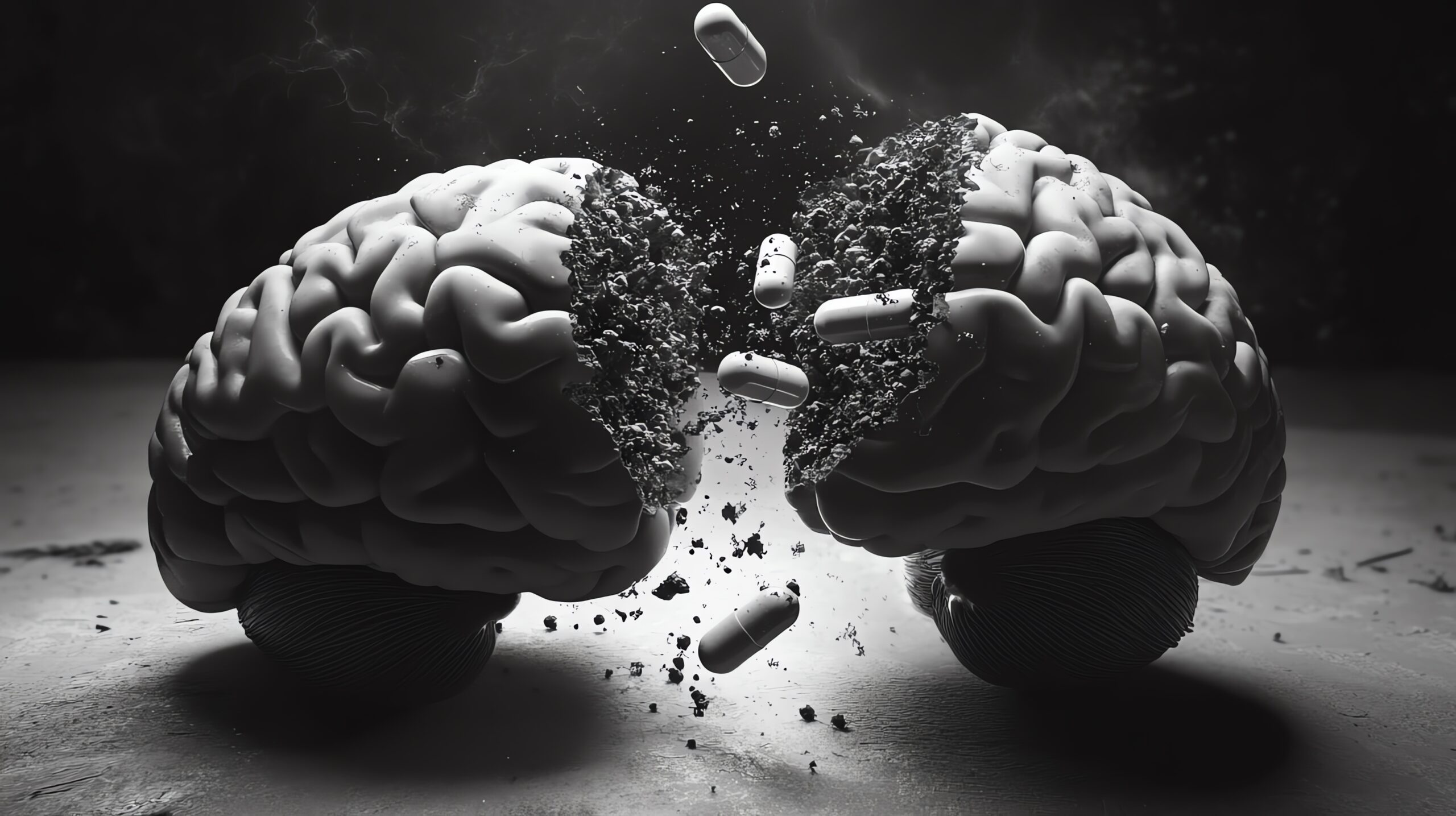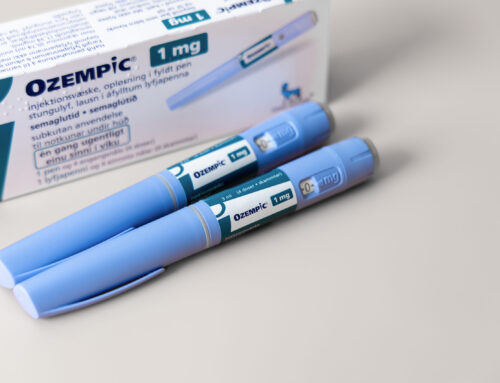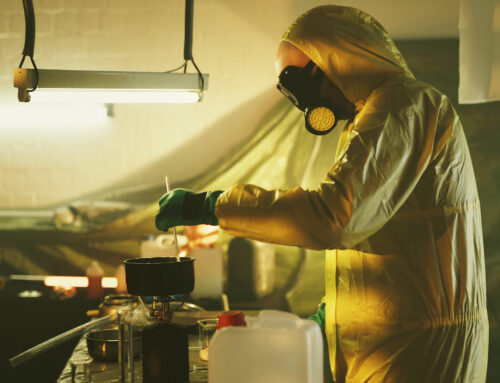Most of us know that addiction ravages the mind and body. We often hear about specific health consequences, like cirrhosis, associated with alcohol abuse, opioid addiction, and cocaine abuse. However, it is much less common to hear about how substance abuse affects brain health and neurochemistry. Because addiction is a disease of the mind, how drug abuse affects the brain is especially relevant.
This Achieve Wellness and Recovery article explores the effects that alcohol and drugs have on the brain and how addiction treatment helps to restore order.
What We Know About Addiction and Brain Damage
This is a complex topic, and we aren’t writing this for neuroscientists, so we won’t get into the minute details. But there’s plenty to know about. There is still a lot we do not know about the brain and how it works—-even science doesn’t have all the answers yet. The brain is the body’s least understood organ.
Still, through research, including autopsies of people who died of alcoholism or other addictions, we do have some solid evidence of how drugs and alcohol affect our brains through the addiction cycle.
Drug and alcohol addiction can cause structural damage to certain brain areas, as well as white matter. Substance abuse also plays havoc with brain chemistry, which can have a profound effect on how you feel, even months after you’ve stopped using drugs or alcohol.
How Addiction Affects Brain Structures and Tissues
Drug and alcohol addiction can cause significant damage to various brain structures and tissues, leading to both short-term and long-term cognitive impairments. Fortunately, time in sobriety can lead to physical recovery for the brain. Not all of the damage done is permanent, but some may be. The sooner a person stops abusing alcohol or drugs and is placed in drug detox, followed by addiction treatment —– the better their outcome is likely to be.
Where Addiction-Related Brain Damage Can Occur
Addiction and the lifestyles that come with it are hard on the body. As one of the most sensitive organs and one that sees a lot of blood flow, the brain is inevitably affected.
Here are different areas of the brain where brain damage from addiction is seen to occur.
Frontal Lobe:
Responsible for decision-making, problem-solving, and controlling behavior. Damage here can result in impaired judgment and reduced impulse control. Frontal lobe damage is associated with many drugs of abuse, including alcohol, opioids, cocaine, amphetamines, MDMA (molly), and, to a lesser degree, THC, the active ingredient in marijuana.
Limbic System:
The limbic system is where emotions and memory are processed. Damage can lead to emotional instability and difficulties in recognizing emotional cues. Drugs known to cause damage to the limbic region include opioids, cocaine, amphetamines, alcohol, and marijuana.
Cerebellum:
Your cerebellum has many responsibilities, but two of the key ones are coordination and balance. Addiction to some drugs can damage this part of the brain and can cause problems with movement and coordination. Substances shown to cause cerebral damage when abused include alcohol, inhalants (like nitrous oxide, toluene, etc.), benzodiazepines, and opioids.
Hippocampus:
The hippocampus is where we form new memories. Alcohol-induced brain damage here can lead to memory loss and difficulties in learning new information. Other substances known to damage the hippocampus include opioids, cocaine, methamphetamine, and marijuana.
White Matter:
The white matter is the stuff you see between the distinct brain structures. Its main job is to communicate between different brain regions. Addiction can cause white matter damage and result in slower cognitive processing and impaired brain function. Almost any drug of abuse you can think of, including alcohol, can cause damage to white matter.
The Impact of Addiction on Brain Chemistry and Mental Health
Neurotransmitters are the key chemicals our brains use to initiate different responses in the body, send signals across the brain and through the nervous system, and more. Too much of one neurotransmitter or not enough of another can create profound symptoms. In fact, altering these chemicals is the main way in which alcohol and drugs create the “high” by taking over the brain’s reward pathways and this is what leads to addiction and dependence.
The main neurotransmitters affected by addiction are:
Dopamine:
Dopamine is the brain chemical most associated with opioid addiction because it is the brain’s main “pleasure” chemical, but nearly every drug of abuse artificially increases dopamine levels, contributing to feelings of pleasure and reward, which lead to dependence. Eventually, the brain can’t produce enough dopamine, and that leads to very unpleasant withdrawal symptoms. Low dopamine can cause depression, anxiety, fatigue, lethargy, and trouble thinking.
Serotonin:
Many drugs affect serotonin levels, which can elevate your mood and help you think more clearly. The drugs that have the most impact on serotonin levels are cocaine, alcohol, MDMA (Molly), and amphetamines, like Adderall or meth. When serotonin is depleted from addiction, the result is depression, mood swings, a lack of concentration and enthusiasm, and brain fog, among other effects.
GABA (Gamma-Aminobutyric Acid):
Drugs like alcohol, benzodiazepines, MDMA, and pink cocaine overstimulate GABA activity, resulting in increased inhibition of brain activity. This leads to sedation and relaxation. But this overstimulation also depletes your natural supply of GABA, leading to rebound effects known as withdrawal.
Glutamate:
Alcohol and other sedative drugs inhibit glutamate, a neurotransmitter that normally excites neurons. This results in slowed cognitive functions and impaired memory and learning. When glutamate is out of balance from addiction, it results in low energy, anxiety, brain fog, and memory problems.
How Addiction Treatment Can Help Restore Balance and Health to the Brain
We won’t mince words. Severe addiction can lead to some permanent brain damage and substantial disruptions to the delicate balance of chemicals in the brain. But the human body is a remarkable instrument, and it has an incredible healing capacity—-especially when that healing is supported.
1: Drug Detox Placement Clears Toxins From the Brain
The first step in addiction treatment is usually admission to a dedicated drug and alcohol detox center. There, a patient is carefully weaned off of drugs and alcohol with medicines designed to help them stay safe and comfortable.
2: Dual Diagnosis Treatment and Neuroplasticity
Drugs and alcohol can negatively impact brain structures, but did you know that therapy and experiences can positively affect brain structures? It’s true. Neuroplasticity is the brain’s ability to physically change in response to stimuli. Evidence-based addiction treatment addresses co-occurring disorders and also helps “reprogram” the brain and change thought and behavior patterns. These positive changes have been scientifically observed in the structure of the brain.
3: Focus on Physical Health and Recovery
Physical health and well-being is a major focus in addiction treatment at Achieve Wellness and Recovery. While we provide treatment to help reorder thinking and behavior, we also give the body the nourishing food, exercise, and rest it needs. A proper diet is essential for the brain to heal, especially since alcohol abuse and drug addiction also deplete the body of key nutrients needed for brain health.
4: Time to Heal
While there are no guarantees that everyone can regain 100% of their cognitive functioning after a long period of alcoholism or drug addiction—we have seen some truly remarkable turnarounds. Once a drug or alcohol detox is complete, patients move through our industry-leading partial hospitalization and intensive outpatient programs.
Achieve Wellness and Recovery is Ready to Make Change
If you or the person you love have had enough of the torturous cycle of addiction, Achieve Wellness and Recovery has a way out. It’s never too soon to begin a sober life, but far too many people wait until it is too late.
If you’re unsure whether you or a loved one is ready for addiction treatment, don’t hesitate to contact us. We are here to answer your questions and provide guidance so you can make an informed choice about treatment for addiction.
Reach Achieve Wellness & Recovery at: (833) 680-0142
Click here to learn how our New Jersey drug rehab can work with your insurance.








